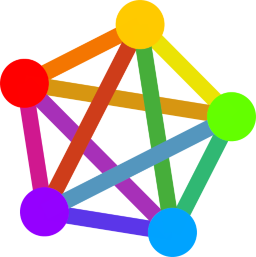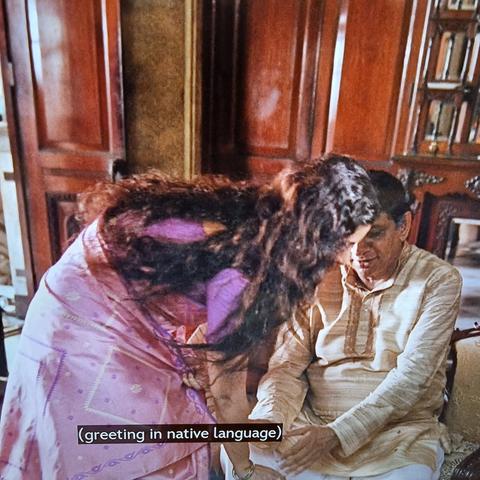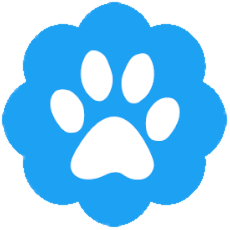Seriously, subtitlers, you don't need to be this lazy
What are some #words in your #NativeLanguage that you hear just often enough to recognize, but not often enough to know exactly what it means?
For me, one is soliloquy. I can usually guess that it has something to do with one person speaking extensively, like a monologue, but I always second guess because why not just say "monologue"? I assume it's not exactly synonymous but I'm never confident & always look it up lol. 🤭
#Wabanaki #Educator Receives National #CommunityService Award
by Jillian Kerr, October 10, 2024
"Lynn Amakehs (butterfly) Mitchell, #Passamaquoddy citizen and #Maine Indian Education Facilities Manager, is deeply committed to preserving her community's culture. Her unwavering dedication has earned her different awards, recognizing her service to her community and her passion for preserving language and culture. In September, Lynn was honored with the prestigious 2024 National Indian Education Association Community Service of the Year Award. This award recognizes Native community members who are role models and have served their community.
"Lynn’s journey to become a teacher and active community member is a testament to her passion and dedication. It all began when she became a mother and started participating in school and community activities. Lynn’s involvement in organizations like the Girl Scouts and PTP (Parent Teacher Partnership) marked the beginning of her service to the community before she started her decolonization work and focus on culture and language.
"Her #decolonization journey deepened after she attended the #UpstanderAcademy, where she met a #Micmac woman and spiritual healer from Canada. Their time and conversations inspired her to learn more and share what she knew, leading her to become the community leader she is today.
"After attending the Upstander Academy, Lynn's commitment to promoting cultural engagement intensified. She traveled to different tribal gatherings and immersed herself in culture as much as possible. She aimed to share her experiences and knowledge and motivate others in her community to participate in and learn cultural activities.
"Lynn plays a pivotal role in nurturing a sense of community and togetherness. She does this in various ways, including by planning community gatherings. Lynn planned a large cultural gathering that the Passamaquoddy hosted, but after much planning and organizing, she became ill and could not attend. She said that her falling ill was a 'blessing in disguise' because it resulted in something beautiful…. community members who usually do not participate in community activities took the lead and ensured the gathering went as planned. These individuals continue to be active community members, a testament to Lynn's success in promoting cultural engagement.
"One of Lynn's most significant contributions is mentoring youth, a responsibility she takes very seriously. In community service projects with youth, she saw how they responded positively, which deepened her desire to do more. These projects demonstrate her commitment to the future of her community.
"Currently, Lynn is mentoring a group of girls through their rights-of-passage ceremony. One activity the girls completed was learning how to honor berries. The girls picked berries and then gave some to the elders when they visited. The girls spend much time with the elders, learning from and talking with them. Lynn's commitment to passing this knowledge on to the next generation provides hope for the community’s ability to preserve tribal culture.
This is Lynn's 38th year working for Maine Indian Education. Since being hired, she obtained a bachelor’s degree in College Studies, focusing on Native Studies from the University of Maine at Machias. She enjoyed her courses, and what she learned provided her with the knowledge and skills needed to create the curriculum and served as a basis for the content she uses in her classes.
"Lynn began teaching the #PassamaquoddyLanguage at Calais High School before she graduated. Her classes are extremely popular and usually have a waitlist. Lynn was surprised when her classes began to have a waitlist, but anyone who knows Lynn was not surprised. Her positive energy and love radiate from her and draw people to her. Her dedication to her students and community makes Lynn a perfect recipient of the NIEA Community Service of the Year Award.
"The #NIEAConvention was established to mark the beginning of a national forum for sharing and developing ideas and influencing federal policy. #NIEA was founded in 1969 and incorporated in 1970 to meet the needs of educators, students, and the community. NIEA held its first 'First Convocation of American Indian Scholars' at Princeton University in 1969. During this meeting, several Native educators discussed concerns and issues related to the education of Native children. For many educators, this large meeting was the first opportunity to share, discuss, and learn about ideas critical to Native Americans in the United States.
"Several Natives who attended that gathering wanted an opportunity to continue the dialogue and share ways to improve education. They desired to explore ways to become more effective teachers and better school administrators and discover practical experiences that could improve schools serving Native students.
"Since its incorporation, NIEA has become a massive organization committed to addressing various issues that Native Americans face. These issues include Boarding School Healing, #NativeLanguage Initiatives, and #CulturallyBasedCurricula. NIEA’s mission is to advance comprehensive, culturally based educational opportunities for #NativeAmericans, #AlaskaNatives, and #NativeHawaiians. The organization advocates for policies and creates programs that support self-determination and the development of comprehensive, culturally grounded learning opportunities for Native students.
"National recognition through the NIEA Community Service Award underscores Lynn’s exceptional contributions to Native education and her dedication to serving the community. Lynn’s drive to preserve language and culture in her community is a tribute to her commitment. Her contributions, which go beyond the classroom, are evident in impactful community service projects that profoundly affect the lives of Native students and their families."
https://www.wabanakireach.org/wabanaki_educator_receives_national_community_service_award
#NativeAmericanNews #NativeAmericanEducators #LynnAmakehsMitchell #Decolonize #WabanakiReach
Is English your native (first) language?
#fediverse #mastodon #privacy #poll #askfediverse #askmastodon #boost #pleaseboost #ask #askfedi #english #language #languages #nativelanguage #firstlanguage #socialmedia
yes
no
English is my main language, but I forgot how to speak in my native/first language
Prefer not to tell
Over the past several decades, scientists have learned more about the people who originally populated North America, and by extension, Central and South America.
One characteristic of these people has remained largely a mystery:
the evolution of the languages spoken by people living in what is now Canada, the U.S. and Mexico.
In a new study, Johanna Nichols, professor emerita in the Department of Slavic Languages and Literatures at the University of California, Berkeley, used statistical techniques she developed to trace language lineage back to the earliest inhabitants of North America, going back 24,000 years.
Nichols' techniques involve the use of linguistic typology, a field that involves comparing languages and organizing them based on shared criteria.
To learn more about early North American languages, she compiled lists of language characteristics and applied them to all known languages.
She then scored each of the languages based on the revealed qualities. This allowed her to compare the languages as a way to find resemblances among them and spot patterns.
Nichols found that she could trace the languages spoken in early North America back to just two lineages,
both of which originated in Siberia.
They came, she notes, with the people who made their way across land bridges during Ice Age glaciation events.
Those two main groups she found evolved into different languages as people moved to different regions
—she focused most specifically on 60 of them.
She found that many of those languages were also impacted by multiple waves of Siberians arriving in North America.
She concludes that some of the characteristics of the original languages have been retained through the years and are now in the current linguistic population
#linguistics
#NativeLanguage
#NorthAmerica #Siberia
https://phys.org/news/2024-04-languages-north-america-language-groups.html
First languages of North America traced back to two very different language groups from Siberia
Johanna Nichols, a linguist at the University of California, Berkeley, has used her pioneering work in the field of language history to learn more about language development in North America. She has found that it can be traced back to two language groups that originated in Siberia. Her paper is published in the American Journal of Biological Anthropology.
(@PSiReN)
#InAllCases of #CompleteNobodies #BitchingAndComplaining about #ALTText (at least #InMyExperience); #EachAndEveryone has been #Articulated in #English (or at least a #NearApproximation of #English)...
I wonder #WhatWouldHappen were I to do #AllMyAltText in:
• #Spanish (my #NativeLanguage);
• #French;
• #Dutch; or,
• #Japanese…
🧙⚔️🤖🐺🤖⚔️🧙 |  🦹
🦹 🦄
🦄 🦹
🦹
English words borrowed from Wôpanâak:
Pumpkin/Pôhpukun (ponh-pu-kun) = ‘grows forth round’
Moccasin/Mahkus (mah-kus) = ‘Covers the whole foot’
Skunk/Sukôk (su-konk) = ‘Ejects body fluid’
Moose/M8s (moos) = ‘moose’
Powwow/Pawâw (pa-waaw) = ‘s/he is healing/heals (someone)’
#wopanaak #wopanaaklanguagereclamationproject #wampanoag #nativelanguage #WLRP
Spotify – KI-Pilot lässt übersetzte Podcasts in Originalstimme erklingen
@SpotifyDE @Spotify #nativeLanguage #Podcast #podential #Spotify
Spotify - KI-Pilot lässt übersetzte Podcasts in Originalstimme erklingen
Stell Dir vor, Du sprichst plötzlich alle Sprachen, die es auf der Welt gibt! Wäre das nicht genial? Wie ist die momentane Lage? Du machst einen Podcast und veröffentlichst diesen in deiner Muttersprache. Wo liegt das Problem? Mag Dein Podcast noch so interessant sein, alleine die
Took me a bit to wrap my head around, but: Hi, I'm non-binary.
How I figured that? By switching my mainly used every day language.
Yea, it's a bit complicated - so I did a little write up on languages and how they affect the way you might be able to express yourself.
https://redmaker.net/2023/09/17/the-non-binary-click/
#Gender #GenderExpression #Language #NativeLanguage
#Nonbinary #Queer #Genderqueer
A thing I noticed a while ago (being about 6 months into a relationship with an natively speaking english one certainly did it's part here):
Why does my brain feel confident in my native language (german) with "er/ihn" (""he/him" in german) - but in english, it's the he/him AND they/them?
To be fair - I'm not aware of an really good equal to that in german anyway - but still. More diverse in a second language? Brain, what?
#Gender #GenderExpression #Language #NativeLanguage #Pronouns

